Auburn University Faculty Awards
2011 President's Outstanding Collaborative Units Award
Center for Forest Sustainability
Kelly Alley
Professor – Sociology, Anthropology and Social Work
College of Liberal Arts
PhD — University of Wisconsin-Madison
BA — Cornell University
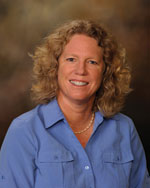
Kelly Alley joined the Auburn faculty in 1991. Her primary research has been in northern India and has worked on public culture and environmental issues. Her work with the Center for Forest Sustainability began on the West Georgia project and she has served as a member of the Executive Board. Her book, On the Banks of the Ganga: When Wastewater Meets a Sacred River, explores Hindu interpretations of the Ganga in light of current environmental problems. She is the author of numerous book chapters and articles on religion and ecology, river and water policy, and environmental law and justice in India and the United States. To connect research with outreach, she directed a project to facilitate professional exchanges between environmental lawyers, scientists, and NGOs to address river pollution problems in India and the U.S. She also worked with an interdisciplinary team to create a radio series on the Ganga for National Public Radio. She is currently studying water governance in the Ganges-Brahmaputra-Meghna river basin that spans India, Bangladesh, China, Nepal, and Bhutan.
Mark P. Dougherty
Associate Professor – Biosystems Engineering
College of Agriculture
PhD, MS — Virginia Tech
BS — Texas Tech
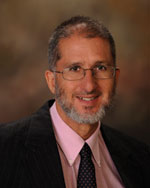
Mark Dougherty is a professional engineer and associate professor of Biosystems Engineering working at Auburn since 2004. He teaches and conducts research in land and water resources and has expertise in fluid mechanics, hydraulics, and civil site design of water and wastewater systems. Specific areas of interest include the use of remotely sensed imagery and mapping software to monitor and manage land development for water source protection. Dougherty currently teaches two irrigation courses, a site design course, and the Biosystems Engineering Senior Design Capstone course. In addition to active research in erosion and sediment control, he is interested in sustainable designs such as low impact development and reclamation of wastewater streams for nonpotable use, as sustainable development is one of the most challenging areas facing today's societies.
Jack Feminella
Professor and Chair – Biological Sciences
College of Sciences and Mathematics
PhD — University of California, Berkeley
MS — University of North Texas
BS — SUNY, College at Oneonta
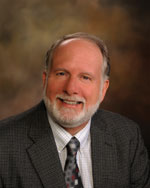
Jack Feminella joined the Auburn faculty in 1991 as an assistant professor in the former Department of Zoology and Wildlife Sciences. His research has centered on quantifying biodiversity and functional ecology of freshwater systems, most notably within southeastern streams. He and his students have addressed field-based ecological questions both at the population and community levels, and have studied organisms ranging from stream microbes to macrobiota and from autotrophs to top carnivores, to investigate the importance of environmental factors on the organization of stream ecosystems, both under anthropogenically disturbed and undisturbed conditions. Focal areas of this research include the effects of urbanization on stream communities, the efficacy of using stream communities as indicators of environmental impairment, and the degree to which impaired systems can be restored and the interactions between aquatic herbivores and producers within streams.
Charlene LeBleu
Associate Professor – Architecture, Planning and Landscape Architecture
College of Architecture, Design and Construction
MLA, MCP — Auburn University
BS — University of Florida
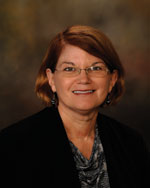
Charlene LeBleu joined the Auburn faculty in 2004. Her primary areas of interest and research focus on green-building and water-quality issues, especially those related to low-impact development design. She is a member of the American Planning Association, the American Institute of Certified Planners and the American Society of Landscape Architects. LeBleu's public service and leadership efforts include working with the Auburn University Center for Forest Sustainability, Alabama Department of Environmental Management and city planning commissions on projects such as the Mobile, Ala., Green Streets Initiative, and promoting low-impact development in Baldwin County, Ala., and Auburn. Her work extends from the university level to town and state affairs, as well as in national professional and academic organizations.
Graeme Lockaby
Associate Dean of Research and Professor – Forest Bioecochemistry
School of Forestry and Wildlife Sciences
PhD — Mississippi State University
MS, BS — Clemson University
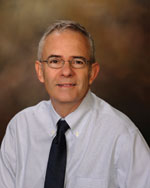
Graeme Lockaby is a native of South Carolina who joined the Auburn faculty in 1986. He specializes in the study of floodplain forest biogeochemistry and the impacts of urbanization on water resources. In his current position at Auburn as director of the Center for Forest Sustainability, he facilitates interdisciplinary research focused on socioeconomic and ecologic implications of forest conversion to urban land uses. Lockaby says his proudest moment was in 2006 when his graduate students nominated him for the Outstanding Graduate Faculty Award, which he received. Lockaby says he enjoys the freedom and flexibility at Auburn to develop new ideas and follow those to fruition. He says that freedom is very stimulating and helps maintain an exciting atmosphere in the workplace.


